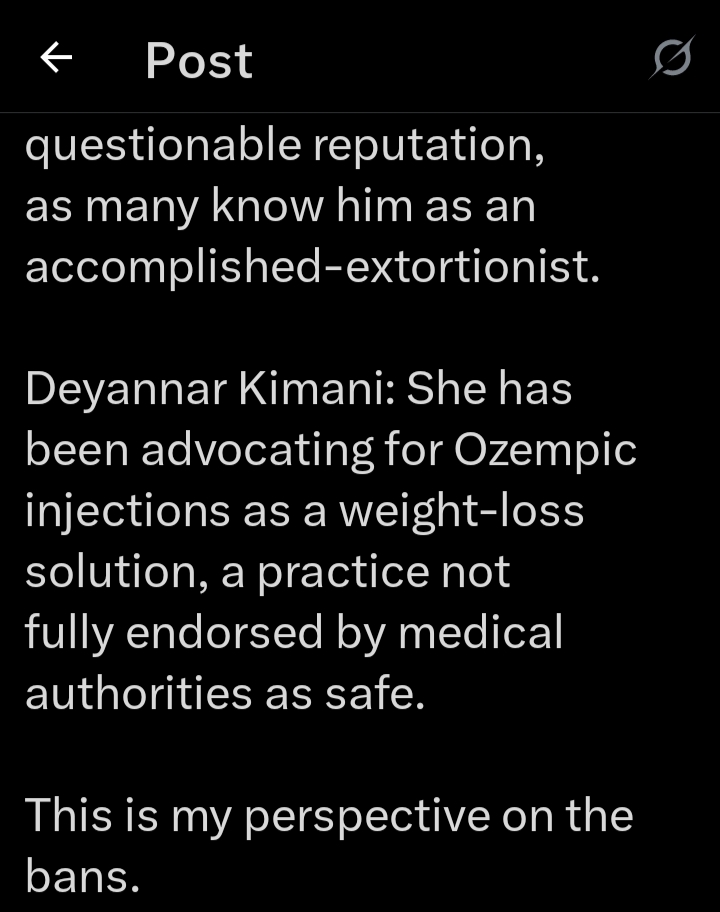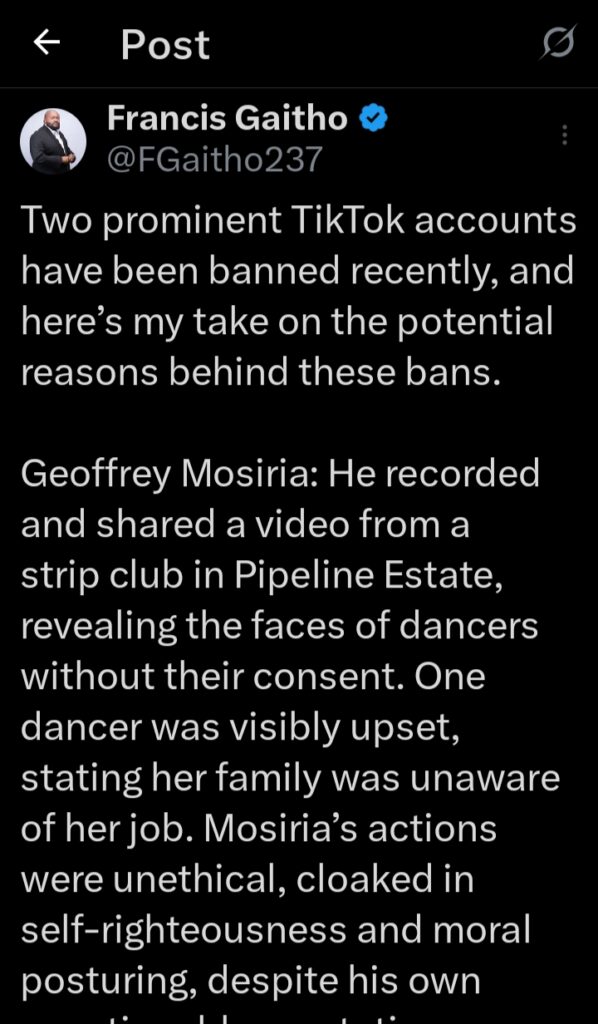Two of Kenya’s most followed TikTok creators, Geoffrey Mosiria and Deyannar Kimani, have had their accounts banned, sparking conversations on digital ethics and responsibility.
Commentator Francis Gaitho, sharing his views on X, argued that the bans were not random but tied to the nature of content they were producing. He noted that Mosiria crossed a sensitive line when he filmed inside a strip club without consent, while Kimani promoted a controversial weight-loss drug that medical experts have warned could be harmful.

His perspective has pushed many to reflect on how far influencers should go and the risks of ignoring community guidelines.
Geoffrey Mosiria, who doubles as the Chief Officer for Environment in Nairobi County, had built a TikTok audience of over 1.2 million followers with more than 21 million likes. He became known for highlighting issues like waste management and flooding in Nairobi neighborhoods.
But critics argue that his style of content often blended public service with personal stunts. In the video that attracted the most criticism, he filmed dancers in a Pipeline Estate strip club without asking for their permission.
One of the women appeared distressed, saying her family was unaware of her job. According to Gaitho, this was unethical and a misuse of influence, especially from someone holding public office.Mosiria’s controversies are not new.
He has previously been accused of misconduct during his university days, with politician Babu Owino claiming he was expelled from the University of Nairobi over assault allegations.
He has also faced investigations from the DCI over issues like illegal garbage dumping. Many of his critics say his content often involved embarrassing business owners or exposing people without regard for their dignity.

With TikTok banning his account, some see it as a long overdue consequence, while others believe it unfairly wipes away years of his work.
Deyannar Kimani, on her part, made her name through bold lifestyle and beauty content. Her mistake, according to Gaitho, was pushing Ozempic, a diabetes drug increasingly misused worldwide for quick weight loss. Doctors have warned that such use can trigger side effects ranging from stomach problems to more serious health complications.
TikTok has updated its policies to restrict influencers from promoting weight-loss drugs, especially because of the risks to young users who may take such advice at face value.
Kimani’s videos promoting Ozempic appeared to violate these rules, leading to the suspension of her account.
The bans have highlighted a bigger issue within Kenya’s fast-growing digital space. Platforms like TikTok give young creators instant fame, but they also demand responsibility.
Posting without consent or promoting unsafe health shortcuts can harm real lives. Francis Gaitho, who has often spoken about online accountability, stressed that this is a lesson in ethics and integrity.
While Mosiria and Kimani may appeal or shift to other platforms, their stories are a reminder that online success can vanish overnight if rules and responsibilities are ignored.





















Add Comment